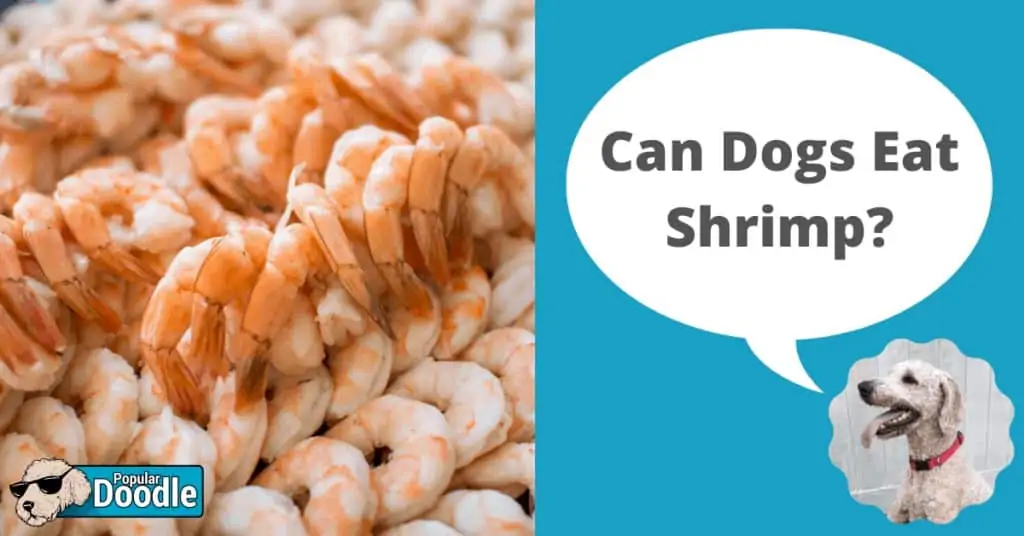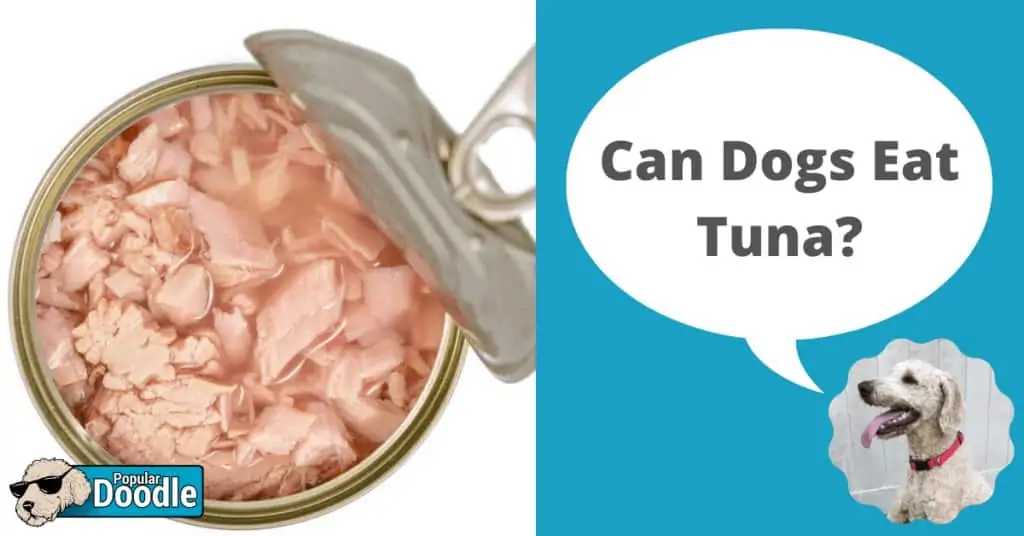
Maybe you like to see crabs crawling sideways across a white sand beach as you lounge in a chair, or maybe you prefer to see a crab on your dinner plate. If you’re like me, you’d prefer the first option, but countless people worldwide love seafood, including crabs! Regardless of personal preferences, health professionals have recommend eating seafood at least twice a week to promote optimal health. If it’s so good for humans, what about our pups? Can dogs eat crab? Or is crab bad for dogs? Let’s find out!
Can Dogs Eat Crab Safely? (The Short Answer)
Yes, dogs can eat crab safely! Crab is a high-protein, low-calorie food that contains some important nutrients such as omega-3 fatty acids, vitamins B9 and B12, and a multitude of minerals. To keep your pup safe when introducing this food you should follow a few guidelines. First, give it only in small quantities. Second, remember that crab must be served plain (without seasonings or spices), cooked to an internal temperature of 145 degrees Fahrenheit, and serve without a shell.
It’s important to remember, that even with the best of intentions, accidents happen and dogs can easily eat things they shouldn’t. Unfortunately, even if those accidents aren’t fatal, they can result in huge, unexpected veterinary expenses. That’s why we recommend all responsible dog owners get a free, online pet insurance quote from Healthy Paws.
Is Crab Good For Dogs?
Yes! Crab offers a significant amount of health benefits without a significant amount of calories or fats! A rich source of protein and omega-3 fatty acids will keep your pup’s muscles in tip-top shape. Crab also contains ample essential minerals as an added bonus!
Crab is an excellent source of protein. To put this into perspective, there are about 16 grams of protein in a 3 ounce serving of crab. That’s almost as much as the 23 grams of protein contained in 3 ounces of chicken!
Omega-3 fatty acids are another huge benefit of eating crab meat. Omega-3 fatty acids have two very important roles—decreasing inflammation and reducing risk of illness. It’s been shown to give heart and kidney health a boost and play a role in improving your canine’s ability to fight cancer. Omega-3 is a very versatile nutrient that has benefits in so many systems throughout the body.
Crab also contains essential minerals. These include zinc, phosphorus, and magnesium. Zinc is important to ensuring enzymes, proteins, hormones, and the immune system are all functioning properly. Phosphorus plays a key role in maintaining bone health. Magnesium controls hormone function and secretion. Hormones are so important in the body as they help regulate everything from endocrine diseases, to heart arrhythmias, to muscle weakness, and so much more.
Crab is known for having high concentrations of vitamin B12. Vitamin B12 is important in brain function, and intestinal health. Vitamin B9, also known as folate, is important in nucleoprotein synthesis, cellular division, and in the synthesis of neurotransmitters.
Is Crab Bad for Dogs?
We’ve already answered the question, “can dogs have crab?” Now, let’s learn about the dangers of feeding your dog this food! Is crab bad for dogs?
Crab contains so many health benefits, but there are a few potential downsides to be made aware of. First and foremost, new foods can be a little bit of a shock to your dog’s digestive system, so introduce this new food in small quantities. Another important thing to remember when giving your dog a new food is the signs and symptoms of an allergic reaction. This can present itself mildly in the form of itching or vomiting or there can be more severe complications including anaphylactic shock which presents as decreased blood pressure, difficulty breathing, and loss of control over the bowel and bladder.
Crab meat should only be given as a snack on occasion, not as a regular mealtime option. Although crab is considered healthy, it has significant levels of cholesterol and sodium. Both of these aren’t healthy for dogs. Excess salt can lead to kidney problems and high cholesterol has a negative impact on overall heart health.
Crab meat must be cooked through completely. It must reach a minimum internal temperature of 145 degrees Fahrenheit. Crab, like most seafoods, can contain intestinal parasites and the only way to get rid of them before consumption is cooking them to an appropriate temperature. Raw or undercooked crab meat can result in some non-so-fun outcomes. It can induce vomiting, diarrhea, abdominal distention, or weight loss and often requires medical attention. In addition to heating this food properly, it shouldn’t contain any seasonings. While we humans love adding spices to foods, it’s not safest for dogs. Many seasonings contain ingredients that can be toxic to dogs, and a lot of seasonings can upset a dog’s stomach. Overall, your dog should only be eating crab that has been cooked properly and is plain without any spices or seasonings.
Other Varieties & Related Foods:
Can Dogs Eat Crab Meat?
Yes, dogs can eat crab meat! Crab meat is what contains the protein, omega-3, and minerals that are beneficial for your pup! When prepared properly, it can be a safe choice to add to your dog’s taste palate.
Can Dogs Eat Imitation Crab Meat?
Yes, technically dogs can eat imitation crab meat, but it’s not highly advised. Imitation crab meat doesn’t contain nearly as many health benefits as the real stuff. Imitation crab is a very processed food and includes the addition of sugar, salt, and other additives that aren’t healthy for pups. The excess sodium in imitation crab meat can be harsh on your pup’s kidneys. Additionally, many store-bought imitation crab meats may contain ingredients that your dog is sensitive to. In comparison, real crab meat provides a larger variety of vitamins and minerals, a higher quantity of nutrients, and doesn’t contain additives or other harmful ingredients. If your dog accidentally ingests a small quantity of imitation crab meat, you shouldn’t panic as they will most likely be fine. As a healthier option, it’s best you stick with the real stuff instead.
Can Dogs Eat Crab Legs?
Yes, dogs can eat crab legs…but if they are taken out of the shell. The shell can not be easily digested and can be a choking hazard. Other than that, the crab legs give essentially all the same benefits as the rest of the crab.
Are Crab Shells Safe For Your Pup?
No, dogs should not eat crab shells. Crab shells can pose a choking risk, especially to small pups. It’s better to be safe and completely remove the shell before sharing any crab with your furry friend!
Can Dogs Eat Crab Cakes?
No, your four-legged friend should stick to plain crab meat. Crab cakes include lots of additional ingredients that pose a risk to pups. Crab cakes often include other ingredients such as bread crumps, mayonnaise, mustard, eggs, and an abundance of seasonings. This mixture can then be cooked in several ways including frying. There are a few problems with feeding your dogs this. Bread is not dangerous to dogs but it also adds a significant amount of calories, carbohydrates, and sugars, none of which are healthy. Seasonings are also a huge problem. Seasonings can include onion and/or garlic which are both toxic to dogs. Even if the seasonings do not include onion or garlic, they’re likely to upset your pup’s stomach. Finally, fried foods are not good for dogs at all. They cause inflammation of the pancreas which can have devastating effects to their intestines.
In Conclusion: Can Dogs Have Crab?
Yes! Crabs are one of the varieties of seafood that dogs can safely enjoy. Crab is a high-protein snack with many additional nutrients. Incorporating crab into your pup’s diet can prove to be a delicious and healthy snack! Remember to remove the shell of the crab, cook it to the correct internal temperature of 145 degrees Fahrenheit, and do NOT add any seasonings.
Want to Learn More?
Check out these related articles from our “Read Before You Feed” series for more advice on safe foods for dogs!
- Can Dogs Eat Lobster?
- Are Crackers Bad for Dogs?
- Can Dogs Eat Shrimp?
- Are Pretzels Bad for Dogs?
- Can Dogs Eat Hot Dogs?
Disclaimer: We are not veterinarians and this article should not be taken as medical or veterinary advice. If you have any questions about your pet’s health or dietary needs, please contact your local veterinarian.









